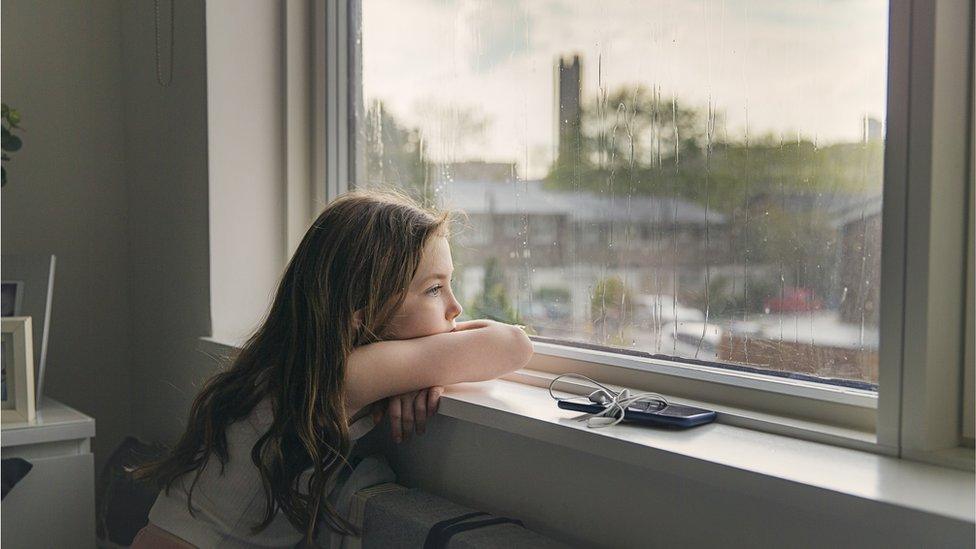UN education report: Young people don't think politicians listen to them
- Published
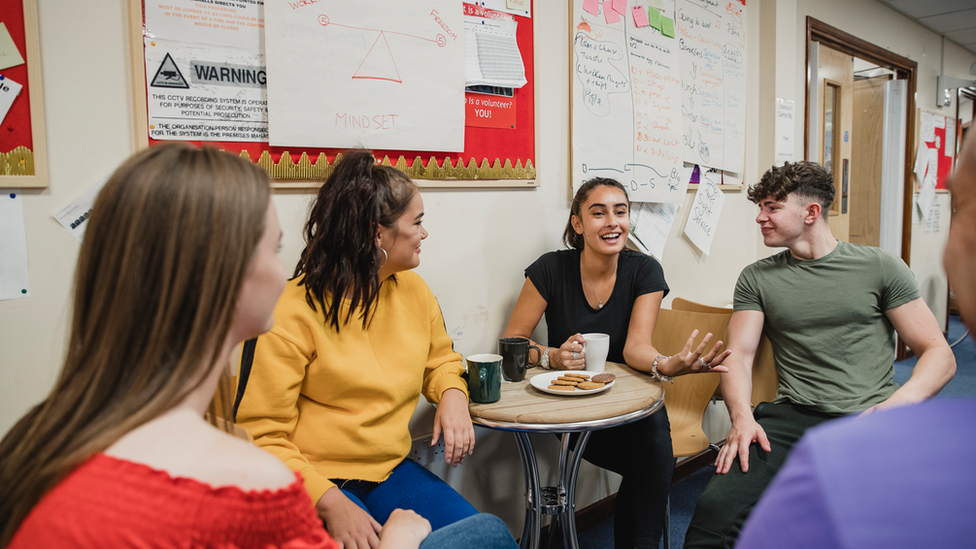
Most young people in Northern Ireland do not think politicians listen to them or take their views seriously.
That is according to reports submitted to the United Nations Committee on the Rights of the Child (UNCRC).
Three extensive reports were prepared by the Children's Law Centre (CLC) on behalf of around 40 non-governmental organisations (NGOs) in Northern Ireland.
They highlight a range of issues faced by children and young people.
These include areas such as health, education and the justice system.
One of the reports submitted to UNCRC also contained views from a survey of more than 1,000 children and young people including a number of face-to-face interviews and focus groups.
The reports demonstrate widespread regression in children's rights in Northern Ireland compared to when the UN committee examined them six years ago, Fergal McFerran from the Children's Law Centre said.
It was also important that for four of those six years there has been no functioning power-sharing government in Northern Ireland, he added.
"I think we have to understand that's probably part of the reason why so many young people are saying they don't feel listened to by politicians," he told BBC's Good Morning Ulster programme.
Collective worship
The reports highlight a number of areas of concern in education.
For instance, they said there was still no right for pupils to withdraw themselves from collective worship in schools - like in school assemblies.
Parents have the right to excuse their children from religious or collective worship but "no action has been taken to permit pupils to withdraw from compulsory worship", said the NGO Stakeholder report.
"Unlike England and Wales, there is no right in Northern Ireland for older pupils to choose to opt out of collective worship."
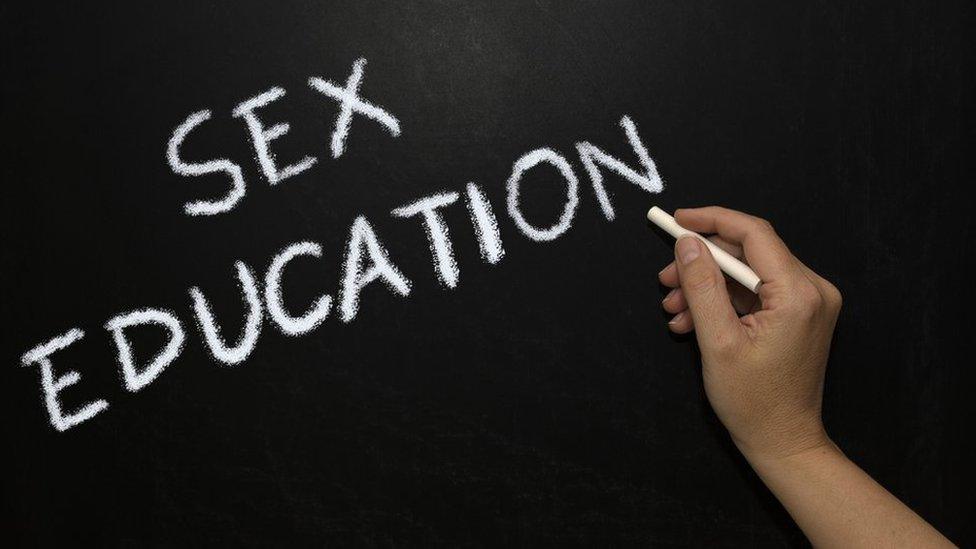
The report recommended introducing compulsory age-appropriate sex and relationship education in schools
Concerns were also raised about the teaching of relationship and sex education (RSE) in schools.
"Current RSE provision is inadequate," the NGO Stakeholder report said.
It called for the Northern Ireland Secretary Chris Heaton-Harris to follow through on moves by his predecessor Shailesh Vara to introduce compulsory age-appropriate relationship and sex education (RSE) in schools.
Currently, each school in Northern Ireland has to teach RSE but what is actually taught to pupils is a matter for each school to decide based on their school ethos.
The report also found the response to the Covid-19 pandemic had increased inequalities "with differential adverse treatment being experienced by disabled children in access to health, social care and education".

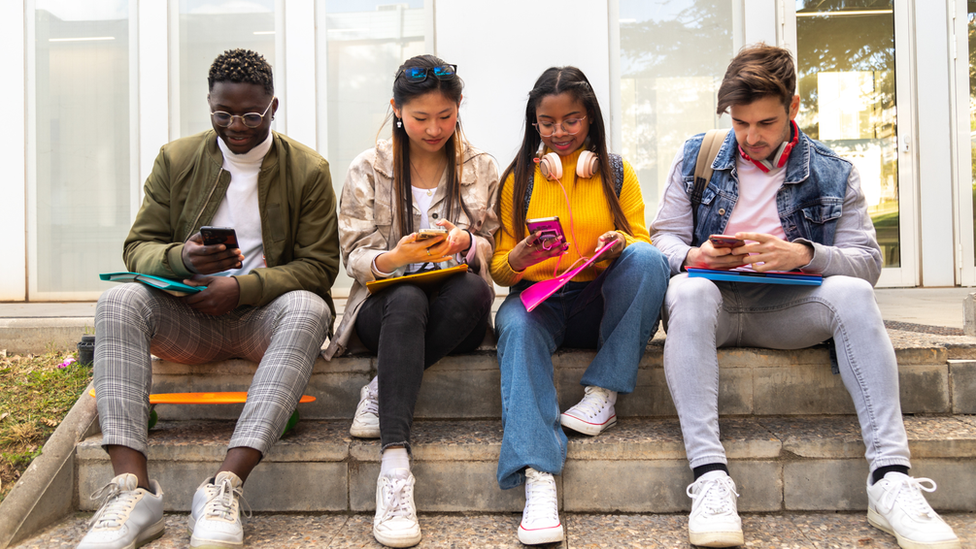
'Politicians simply ignore us'
Conor Reilly, 16, from Belfast, a member of the Children's Law Centre youth panel, said there was generally a feeling among young people that "politicians simply ignore them, that they can't communicate with them".
"I have had opportunities to speak to politicians, yet everything I have said and my peers have said is often just ignored, at least that's what it appears to us." he added.
"A lot of smiles and nods, but nothing is really properly communicated."
He told Good Morning Ulster that politicians don't seem to see the point of appealing to young people "as we don't win elections as readily as older people".
Conor also said he would withdraw himself from collective worship at school, if given the option.
"I am not a religious young person myself, at A-levels I don't have to study RE (Religious Education) and I never had a passion for it particularly," he said.
He added that more is needed to be done around the teaching of relationship and sex education (RSE) in schools.
"It is not just me who is feeling that, in the report we had a survey cast out to many young people - 48% of them believe that their sexual education wasn't adequate.
"I concur with that opinion - it's just not present in a lot of schools, the way it should be."

BBC News NI has previously revealed how respite services for families were cut during the pandemic, for example.
But the CLC report also highlighted wider failures in provision for children with special educational needs in the school system.
Pandemic impact
It also raised concerns about how the pandemic and restrictions had affected children and young people.
"Children raised a number of concerns regarding the pandemic," it said.
Those included: "Impacts on the physical and emotional health of children and young people, particularly those who are vulnerable; restricted opportunities for play and leisure; negative stereotyping of young people as the main group spreading the virus."
The pandemic also highlighted "the significant adverse impact of lack of internet access and digital poverty" among some disadvantaged families and in some rural areas.
A previous report from the Commissioner for Children and Young People (NICCY) found children had been "severely impacted" by restrictions.
More widely, many children and young people who contributed to the reports felt they were "negatively stereotyped in the media".
Older teenagers especially said they faced "discrimination and prejudice because they are viewed as being 'troublesome' or 'dangerous'".
"Young people get categorised into stereotypes, they don't get listened to - you're just rowdy or want to fight," one young person told the report's authors.
"Adults look at young people and expect them to be trouble," another said.
While a majority of young people who contributed to the reports felt that adults in their family listened to them, only around 15% of those surveyed "considered that they would be listened to by politicians if they gave their opinion".
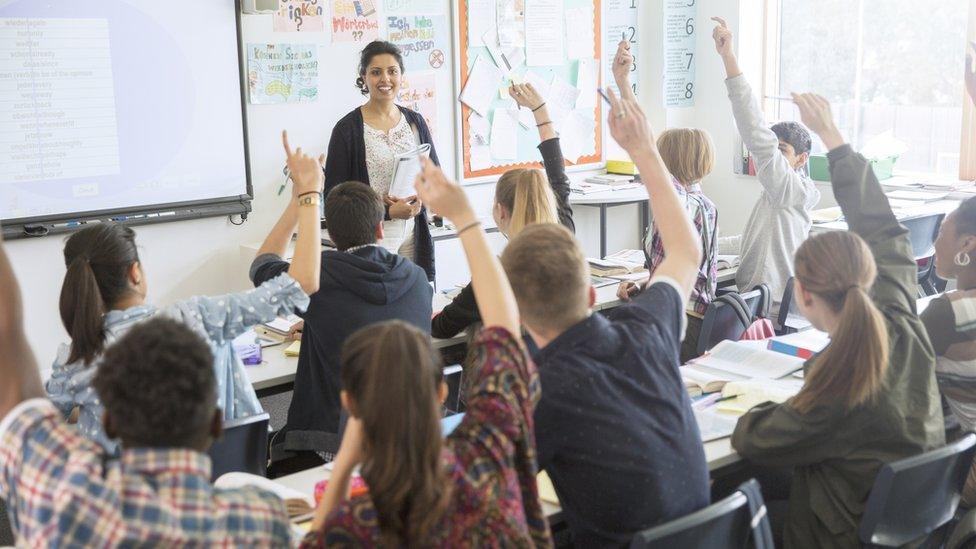
Politicians are just talk and no action, one of the young people said
Fewer than one in five said that politicians asked them about "issues that affect them or other young people in their area".
"Politicians are just talk and no action," one young person told the report's authors.
"They're probably very set in their own views, there's probably more they could do - they never come into schools," another said.
Brexit implications
"The UK and Northern Ireland governments exclude children from major policy decisions," the CLC report concluded.
"In addition to expressing a range of concerns about the implications of Brexit for travel, trade, identity, health, education, freedom of movement, security and funding, young people have argued that Brexit-related issues should be taught in schools.
"They consider that political parties and the media should publish age-appropriate literature about the implications of Brexit, and formal procedures should be established to inform children/young people as well as engaging them in debate and enabling their voices to be heard."
The UK government has to report to UNCRC every five years on how they are protecting children's rights in Northern Ireland.
The three reports submitted by the CLC on behalf of non-governmental organisations in Northern Ireland are part of the UNCRC's examination process.
A delegation of young people from Northern Ireland will also travel to Geneva to meet with the UN committee in February.
Related topics
- Published29 July 2022
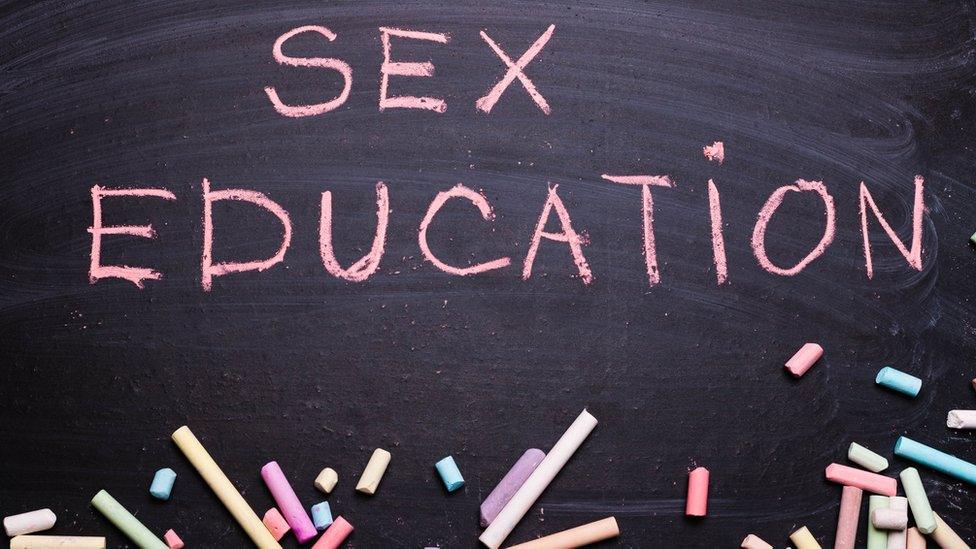
- Published8 June 2022
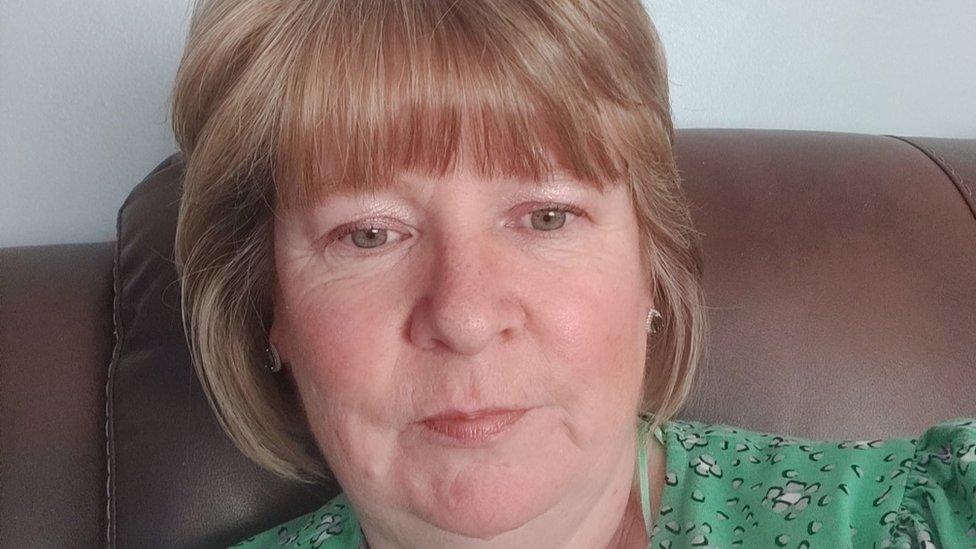
- Published28 August 2021
